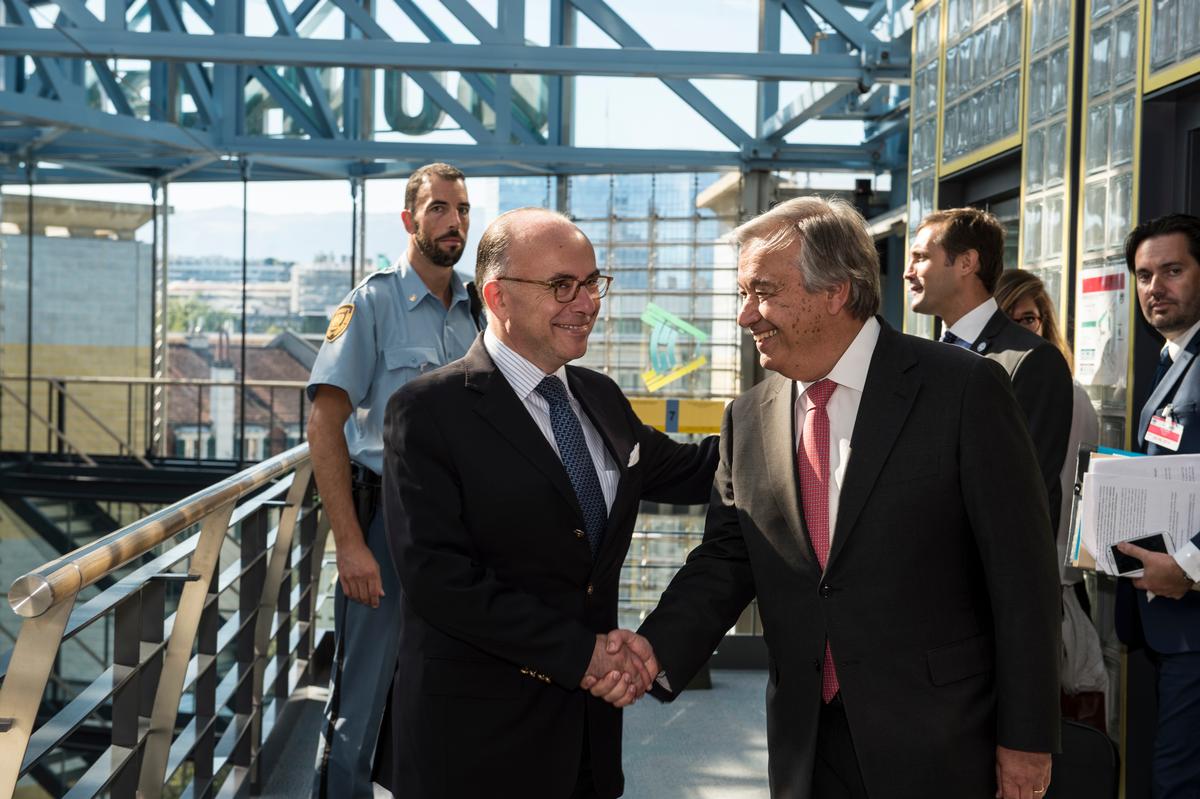High Commissioner on mission to Georgia
High Commissioner on mission to Georgia
UN High Commissioner for Refugees António Guterres arrived earlier today in the Georgian capital Tbilisi at the start of a four-day mission to Georgia and the Russian Federation. He will assess UNHCR's humanitarian operations in both countries and will meet people displaced by last week's conflict in and around the Georgian breakaway region of South Ossetia. Mr. Guterres will meet with Georgian and Russian authorities and discuss any further aid they may require.
The High Commissioner will again press for the protection of the civilian population, especially those newly displaced, and for safe and unhindered access by humanitarian organizations to the areas of displacement.
Also this morning, we organized the first humanitarian flight to Batumi in western Georgia. Aid supplies for more than 50,000 people have been flown to Tbilisi but road convoys cannot reach western Georgia, where some 15,000 displaced are in urgent need of humanitarian assistance. A UNHCR-chartered Boeing 707, carrying aid from our emergency stockpile in Dubai, landed this morning at Batumi airport at 08:05 local time. Its cargo included 200 tents, 15,000 blankets, 3,000 kitchen sets and 6,000 jerry cans.
UNHCR, which has six offices in Georgia working on behalf of some 220,000 previously displaced people, is rapidly moving ahead with distribution of aid items. Just yesterday, 13 UNHCR teams gathering some 40 staff and 13 trucks distributed humanitarian assistance to some 11,000 internally displaced people. The aid included 11,000 blankets, 5,000 kitchen sets and 4,500 jerry cans. Another ten of our teams visited 50 collective centres accommodating some of the newly displaced population. They assessed the numbers of displaced, their needs and living conditions. Based on these findings assistance will be distributed to them.
A UNHCR emergency team has been deployed to Georgia with 11 specialists so far. They will boost the capacity of our current staff in Georgia of more than 50.
The situation on the ground in Georgia remains volatile and unpredictable. On Sunday, a joint UNHCR and World Food Programme (WFP) convoy managed to enter the town of Gori - just south of the boundary with South Ossetia. This was the first time since the outbreak of the conflict on 8 August that UN agencies were given access to that city. UNHCR delivered aid for some 1,500 people, which included jerry cans, kitchen sets and blankets. The goods ware unloaded in a warehouse and will be distributed by local authorities. Earlier that same day, a UNHCR security mission was unable to get through to Gori along the same route.
UNHCR staff reported the town to be mostly deserted on Sunday. They came across some 50 to 60 people gathered in the city centre and waiting for assistance. While the damage to the buildings did not appear extensive, there were clear indications of massive looting of shops and apartments.
After the first UN convoy reached Gori on Sunday, some of those who fled the city were thinking about returning. Those who managed to leave unharmed told UNHCR they were eager to return as soon as possible. But they say they need basic assistance, especially clothes. Others, who have witnessed atrocities and lost relatives during the fighting, are still in shock. They are afraid to return and want to wait until international agencies have established a presence in Gori.
The latest estimates of displacement related to the conflict total more than 158,700 people - based on figures provided by the Georgian and Russian governments. It is reported that up to 30,000 people are displaced within South Ossetia. In addition, some 98,000 people are displaced in Georgia proper, including most of the population of the town of Gori. Russian officials in North Ossetia indicate some 30,000 people from South Ossetia are still in the Russian Federation.
During a meeting this morning with the Georgian Minister for Reintegration, Temuri Yakubashvili, High Commissioner Guterres called on the international community to mobilize resources for the humanitarian assistance effort in Georgia.
UNHCR urgently needs additional funds to ensure continued assistance to the newly displaced population in the Caucasus region. Our part of the US$58.5 million Georgia Crisis flash appeal, launched yesterday in New York, amounts to US$16 million for the next six months. This will cover UNHCR's protection, shelter and assistance programmes for the newly displaced in the Caucasus region.






